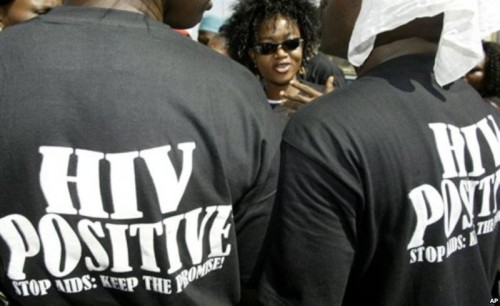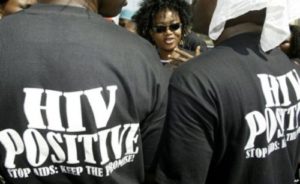News
16, 000 Persons Living With HIV Died In Borno In 3 Years — Network

By Rabiu Sani
The Borno chapter of the Network of Persons Living with HIV and AIDS in Nigeria (NEPWAN), says more than 16, 000 members of the organisation died in the past three years in Borno.

Its Chairman, Hassan Mustapha, told newsmen on Saturday in Maiduguri that the victims died due to the activities of Boko Haram, which made it difficult for patients to access Anti-Retroviral Therapy (ART) and other support services.
Mustapha was speaking against the backdrop of the 2017 World AIDS Day.
He explained that more than 27, 000 persons were registered for ART between 2011 and 2014, in various designated centres in the state, lamenting that the number dropped to 11, 303 clients in 2017.
He said that the deaths were due to lack of access to treatment, non compliance to the use of drugs and poor economic status of the persons living with the virus.
Mustapha disclosed that the association confirmed the death of its members through visitation and phone calls to their families, noting that most of the deaths were not recorded at the ART centres.
The chairman added that the reduction in the number of persons on ART was a clear indication that the persons were either dead or missing.
Mustapha maintained that the deaths were due to lack of access to ARV drugs in the communities affected by insurgency.
“Most of the ART centres were closed down due to Boko Haram insurgency, thereby making it difficult for our members to access treatment.
“Positive living persons in Damboa, Damasak, Monguno, Konduga, Malamfatori and other rural communities could no longer access treatment, as they could not afford transportation to travel to areas where services were available in Maiduguri and Biu.
“The situation was further compounded by the inability of the state government to pay its counterpart fund for the HIV/AIDS campaign programme in the last three years.
“Development partners could also not provide care and support services; economic strengthening support and other services to improve the health status of our members.
“It is clear that the virus is not curable but it could be controlled through effective management. Thousands of our members stopped visiting clinics and when we reach out to locate them we find out that they were either dead or missing,” he said.
Mustapha further decried non-inclusion of their members in the state government’s skills acquisition programme, to enable them engage in income generating activities and meet their needs.
“We have been able to control stigma in the society but we need economic empowerment support to enable us make a healthy living.”
However, Dr Haruna Mshelia, the Commissioner for Health, said that the state government had paid its counterpart fund to the programme, to facilitate its successful implementation.
Mshelia said the state had recorded success in the campaign against the virus in the past three years.
He disclosed that the state government had established 42 HIV Testing Service Centres in health facilities and Internally Displaced Persons (IDPs) camps and 52 Prevention of Mother to Child Transmission PMTCT sites, with 12 ART sites in general hospitals across the state.
Mshelia noted that the state government had scaled up activities in 237 health facilities, to control transmission and provide quality services for positive living persons.
The commissioner said that the services were provided in collaboration between the state government and National Action Committee on AIDS (NACA), National Emergency Management Agency (NEMA), FHI360, IHVN and UNFPA.
“In 2017, some 236, 404 persons were tested for HIV and 1, 902 new cases recorded in the state.
“11, 303 clients are currently receiving anti-retroviral treatment and 922 others on PMTCT.” (NAN)
-

 Entertainment4 days ago
Entertainment4 days agoNigerian Singer, Ifunanaya, Died After Snake Bite In Abuja
-

 News5 days ago
News5 days agoI’ll Rather Build Industries Than Build Mega Churches — Prophet Sam Ojo
-

 Opinion4 days ago
Opinion4 days agoBola Oyebamiji: Beyond Skelewu Dancer: The Rising Technocrat Poised To Govern Osun State In 2026 By Wale Atoba
-

 News4 days ago
News4 days ago20-Year-Old College Student Found Dead With Body Parts Missing In Kogi


